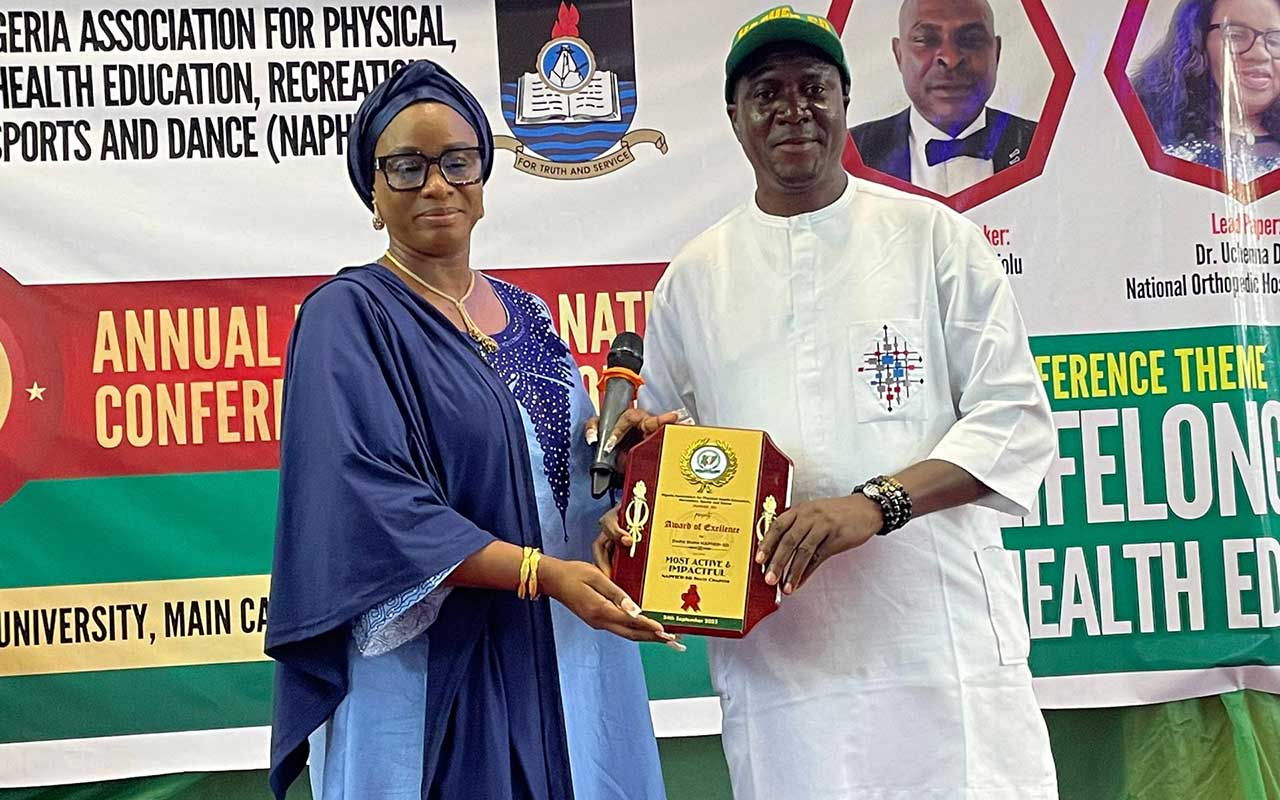The Chairman of Delta State chapter of Nigeria Association for Physical, Health Education, Recreation, Sports and Dance (NAPHER-SD), Godspower Avwerosuoghene Odedede, says Nigeria’s sporting environment is still at crossroad as the nation commemorates 65 years of independence. Odedede told The Guardian that the nation is blessed with raw talent, but hindered by chronic underfunding and weak structures.
“At 65, Nigeria’s sports ecosystem faces two paths: remain dependent on flashes of individual brilliance or embrace reforms that build a sustainable industry.”
According to him, with deliberate investment, governance reform, and lessons from global best practices, Nigeria can evolve into not just a source of world-class athletes but a global sports powerhouse.
“The sector must urgently evolve from a sporadic source of pride to a sustained economic driver aligned with international best practices,” he said.
Odedede noted that Nigeria sports has nosedived from national pride to untapped potential saying: “Historic feats such as Chioma Ajunwa’s Olympic gold, the “Miracle of Damman,” and the rise of icons like Hakeem Olajuwon and Victor Osimhen highlight Nigeria’s sporting pedigree. Yet, individual triumphs have not translated into systemic economic progress.
“According to the National Bureau of Statistics, sports and leisure contributed only 0.19 percent to GDP in 2019, 0.31 percent in 2020, and 0.33 percent in 2021. Statistician-General Prince Semiu Adeniran revealed the direct contribution was a mere 0.005 percent—far below the global average of 1–2 percent and the 3-5 percent levels in nations such as the United States, United Kingdom, and Germany. This represents billions in lost revenue and thousands of unrealised jobs.”
On funding Gaps and missed opportunities, Odedede revealed that the federal government allocated N31.24 billion (about $20m) to the sports sector in 2024—less than 0.11 percent of the total budget.
“Critics argue this is insufficient for infrastructure, grassroots programs, and international competitiveness, yet the Sports Ministry targets an ambitious 7 percent GDP contribution and $3bn revenue by 2027.
“Achieving this requires bold reforms in governance, commercialisation, and private sector participation,” he stated. To attain global best practices as blueprint, the Delta State NAPHER-SD boss said: “Globally, sports is a $500bn industry, spanning media rights, sponsorships, retail, and tourism. South Africa provides a regional model, with its sports sector generating R50bn annually, employing over 500,000 people, and earning $3.6bn from sports tourism in 2022. Nigeria, with a median age of 18 and a large diaspora, has the structural foundation to replicate such success if reforms are enacted.”
He also spoke on media rights, from consumer to producer saying: “Nigeria spends heavily on foreign sports but earns little domestically. MultiChoice Nigeria reportedly pays $250m yearly for EPL rights and €100m for UEFA Champions League rights, while the Nigerian Premier Football League struggles to monetise broadcast rights. Experts recommend investing in quality production, adopting digital streaming platforms, and introducing consistent scheduling to attract fans and sponsors.”
On the way forward, Odedede said: “Experts propose a five-point agenda, which include policy reform, enacting a National Sports Industry Policy with PPPs, tax incentives, and transparency. Germany’s 50+1 law offers a governance model ensuring fan ownership and stability.”
On infrastructure, he urged the federal government to build multi-purpose academies across six geopolitical zones, modeled after Qatar’s Aspire Academy.
On grassroots and education, Odedede said: “There is urgent need to restore school sports and establish a Nigerian Collegiate Sports Association (NCSA) similar to the NCAA.
“Also, there is the need to look at commercialisation and athlete welfare in the country, with a view to launch a Nigerian Sports Development Fund akin to the UK’s Lottery system and improve athlete welfare schemes.” On sports tourism, Odedede urged the government to bid for continental events such as AFCON and the African Games to boost local economies.




